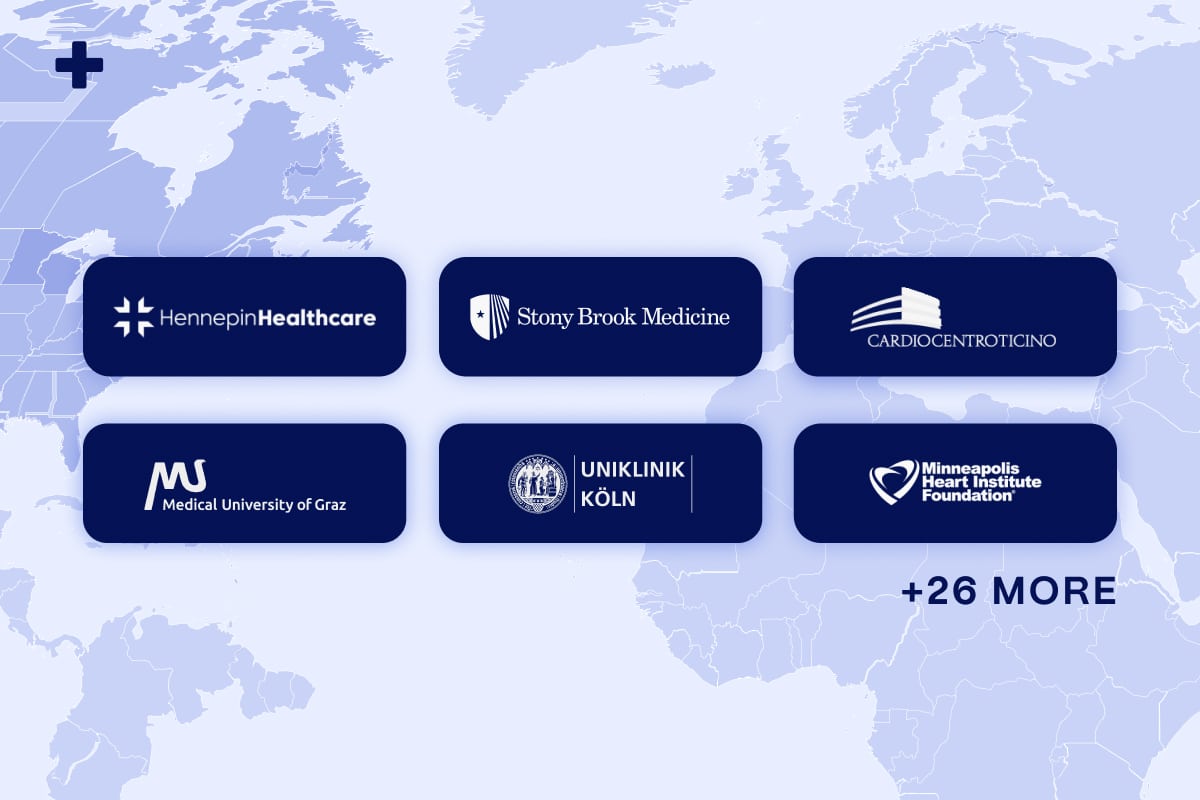At Powerful Medical, we are deeply engaged in enhancing and rigorously validating our OMI AI ECG Model, which is now undergoing extensive testing at 40+ clinical sites globally.
The research initiative encompasses the analysis of over 84,000 consecutive patients who presented with chest pain, underscoring our commitment to understanding the model’s applicability and accuracy in diverse clinical scenarios.
Independent clinical research is crucial for developing and adopting AI in healthcare, as it builds clinician trust and supports widespread use. Our organization emphasizes the need for robust, impartial evidence to integrate AI technologies effectively, especially in critical care.
In an effort to facilitate this integration, Powerful Medical is proud to disclose several key milestones that have been achieved in the pursuit of validating the OMI AI ECG Model:
- The creation of the largest known database related to ECG analysis and patient outcomes in the context of chest pain, featuring data on nearly 100,000 individuals. This comprehensive dataset serves as a foundational element for rigorous AI model testing and refinement.
- The establishment of a global consortium comprising 40+ clinical partners distributed across 25 countries. This wide-ranging network facilitates a diverse and inclusive approach to validation, ensuring that the AI model is tested across various healthcare systems, patient populations, and clinical settings.
- The model’s validation across more than five subpopulations within acute coronary syndrome (ACS), including out-of-hospital cardiac arrest (OHCA), thereby demonstrating its versatility and potential applicability in a range of emergency care scenarios.
- An emphasis on diverse data collection methodologies, capturing a wide spectrum of use environments and patient demographics to ensure that the AI model’s effectiveness and reliability are universally applicable.
Adding to these milestones, our latest achievement includes the first external validation of the OMI AI ECG Model in a German Chest-Pain Unit cohort. The one-year retrospective study involved 1,770 patients and showcased the model’s exceptional diagnostic capabilities, particularly its high specificity and accuracy. The AI model achieved a 95.3% diagnostic accuracy, with a specificity of 96.7% and a sensitivity of 51.8%, based on initial ECGs. STEMI patients diagnosed in the prehospital phase were excluded from this analysis. Remarkably, in patients without indications of acute myocardial infarction based on serial high-sensitivity cardiac troponin tests, the model demonstrated a specificity of 98.9% and a negative predictive value of 100%, highlighting its potential to enhance diagnostic processes for occlusive myocardial infarction in emergency settings. For our German-speaking audience interested in a more detailed dive into the study’s findings, we invite you to follow this link.
These promising results underline the technical applicability and considerable diagnostic quality of our AI tool in a diverse patient cohort, paving the way for further systematic prospective analysis.
Through these research initiatives, Powerful Medical is dedicated to enhancing the reliability and adoption of AI in healthcare, specifically through the rigorous validation of the OMI AI ECG Model. Our efforts aim to pave the way for improved patient outcomes and the optimization of clinical workflows through the innovative use of AI technologies.
To learn more about how our OMI AI ECG Model can transform patient care and to see it in action, we invite you to Book a Demo with us today.
Stay on the pulse with our newsletter
- Emerging ECG patterns
- Expert-led webinars
- STEMI management updates
- AI advancements in emergency hospital care







